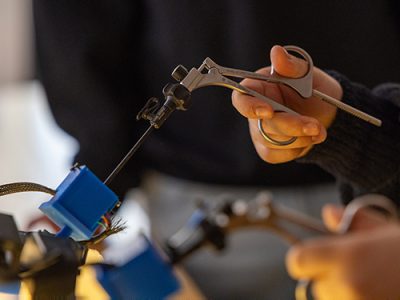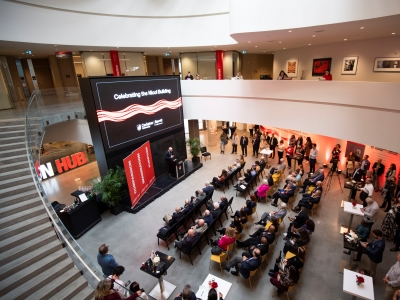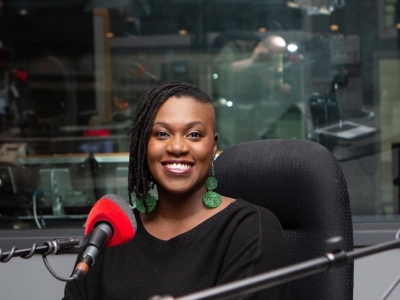By Joseph Mathieu
Photos by Josh Hotz
Early in a new documentary film that captures the heart of Jesse Stewart’s project We Are All Musicians he explains that its intention is explicit in its name.
“That’s the idea that everybody—you know, everyone—has the right to make music and experience music if they want to,” he says.
A celebration of the project and the premiere of Rich Tapestries gathered musicians, educators, students and children at Carleton University on May 5, 2019. The half-hour doc showcases how Stewart, a renowned percussionist, Juno award-winning musician, visual artist and music instructor, is bringing people together through inclusive activities and interactive concerts.
Filmmaker Hasi Eldib, a video producer at Carleton’s Media Production Centre, connected with Stewart in early 2017 to document the WAAM initiatives. Eldib strove to capture the great lengths to which Stewart went to create meaningful experiences for hundreds of people.
“I’m really interested in stories of the heart,” says Eldib.
Funding for the video was provided by a grant from ArtsEverwhere, a division of the Musagetes Foundation, and Eldib singlehandedly shot and edited Rich Tapestries. Stewart made it clear that the video producer would have full creative control of the story he wished to tell through film.
“I don’t think I can really articulate in words what it’s been like working with Jesse,” says Eldib. “It’s been incredible.”
Since he was a kid, Stewart has been obsessed with sonics.
“I remember hearing a sound that really captivated my imagination and to me there was a kind of sense of magic in that sound,” he says in the film.
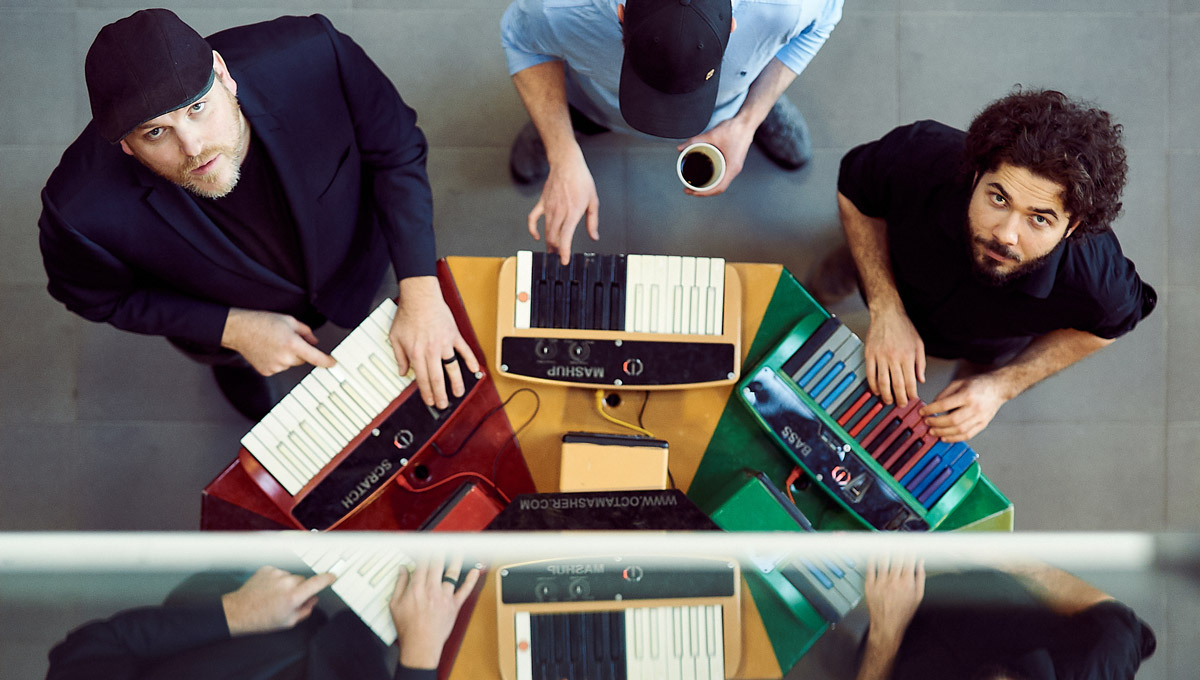
Finding Rhythm and Song in All Things
He learned early on that rhythm and song were everywhere, in all things. Armed with that sense of wonder and a love of drumming, Stewart grew up to become a jazz percussionist, dedicated teacher and promoter of the powers of musical art.
Through WAAM, he shares his skills as composer, researcher and instrument builder. For Stewart, there is no device too analog to make music—he has played whole concerts on ice xylophones, a series of library books and a piece of cardboard.
At the same time, no technology is too high for WAAM. One interactive concert allowed a dancer with Down syndrome create her own song using tablet-based Adaptive Use Musical Instruments (AUMI).
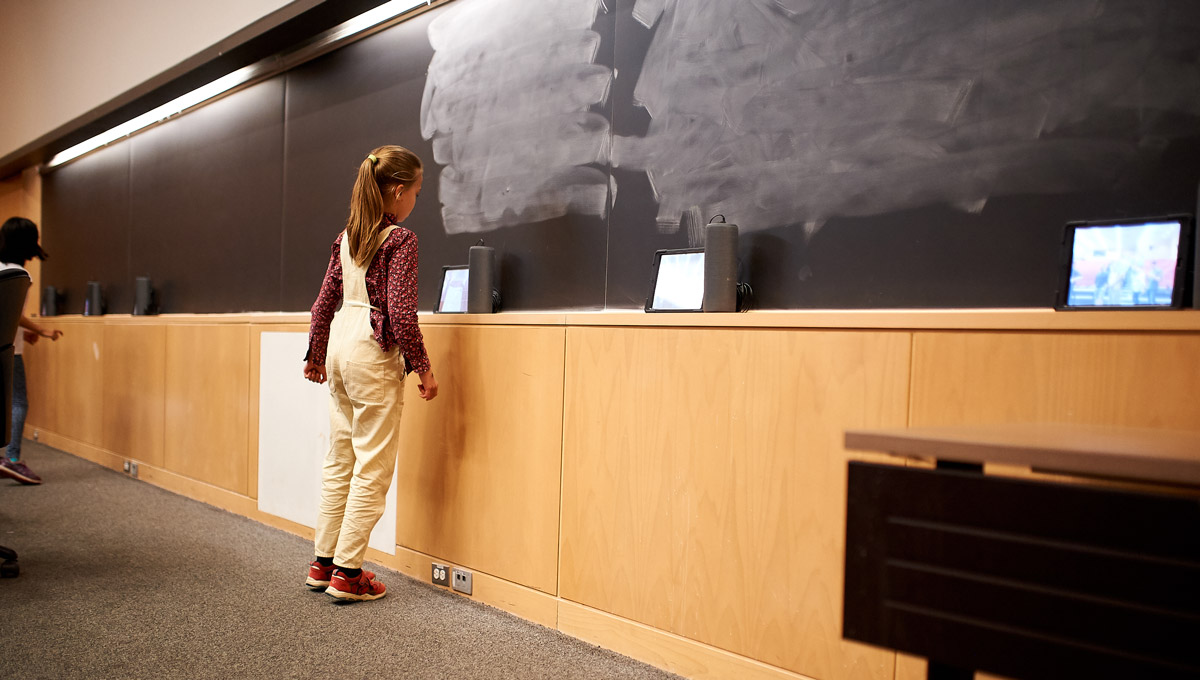
Featured in the film, the AUMI was invented by composer and humanitarian Pauline Oliveros, which whom Stewart has performed and recorded several times. For more than 10 years, and continuing after Oliveros’s passing in 2016, Stewart and a group of Canadian and American researchers known as the AUMI-Consortium continue to develop and improve the instrument.
“She had this idea, over a decade ago now, to try to develop an instrument that could adapt to anyone’s range of mobility,” says Stewart. “That motion could be tracked and then translated into sound.”
Accessibility and inclusivity figure prominently in everything WAAM does. AUMIs were available for play following the film’s screening and a short Q&A with Stewart and Eldib. For the reception, the sample-storing keyboards of a unique instrument called the Octamasher filled Richcraft Hall’s atrium with hip hop and dance beats.
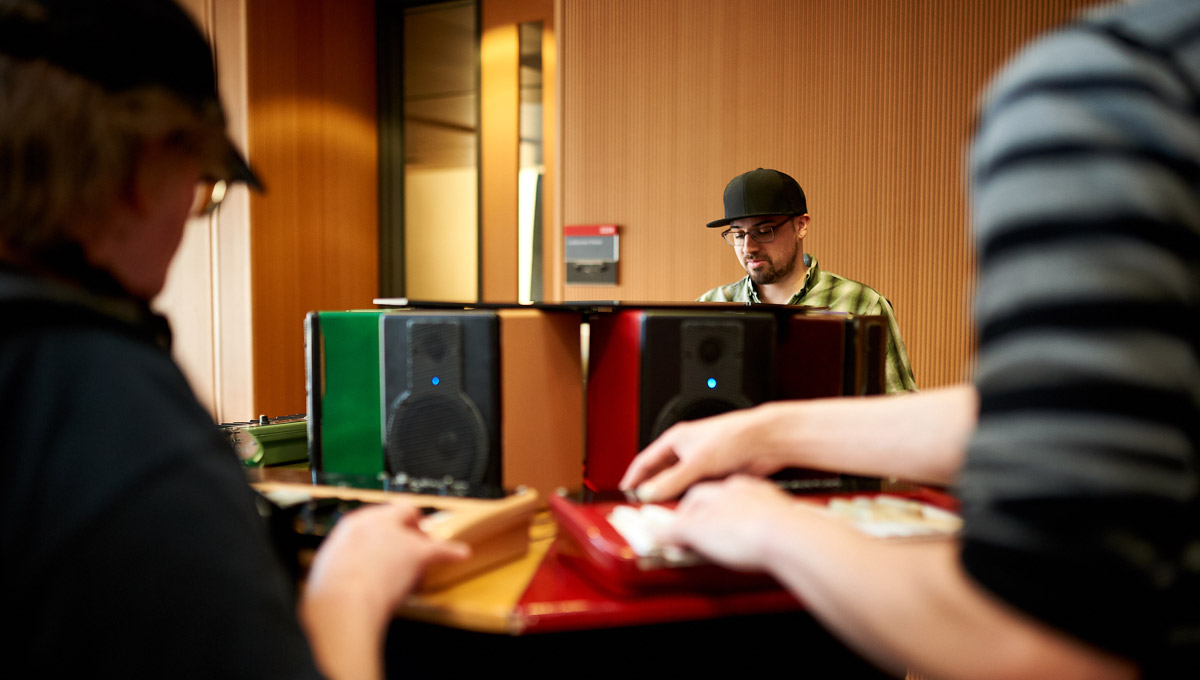
Showcasing the Power of Music
Since 2014, Stewart has collaborated with organizations that support people with learning or mobility disabilities and children of all ages to host family activities, concerts and experiments for sound exploration.
WAAM workshops, performances and projects take place anywhere, from the National Arts Centre (NAC) to the wetlands of Ottawa’s Greenbelt.
The film hinges on the “Symphony Hack Lab” performance in February 2018, when Stewart and students from Ottawa’s Regina Street Alternative School performed at the NAC. Backed by the NAC Orchestra, the group led by Stewart performed an homage to Mud Lake in the Britannia Conservation Area using all manner of instruments.
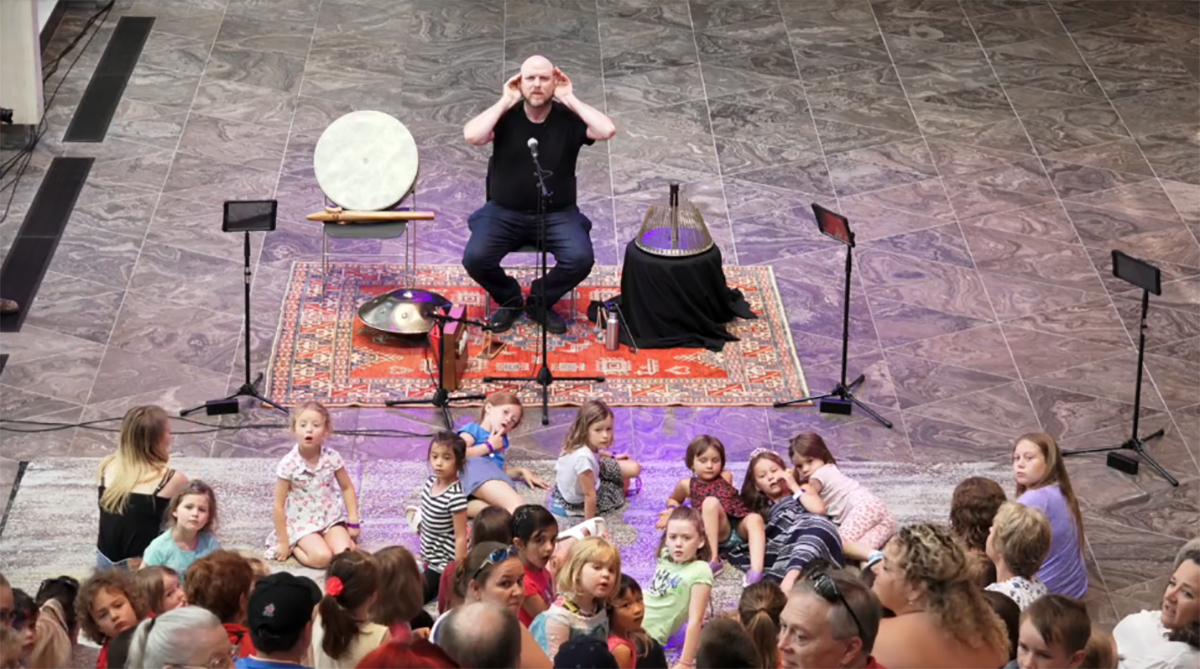
To Stewart, the connections forged over music-making are powerful ones.
“Those musical relationships aren’t just musical relationships,” he says in the film. “We’re also creating and articulating social relationships as we interact with one another.”
Ever curious, Stewart continues to study those relationships as they develop around his work. What it all confirms for him is that music is a fundamental human right and a means of communication that transcends language.
Wednesday, May 8, 2019 in Faculty of Arts and Social Sciences, Music
Share: Twitter, Facebook
